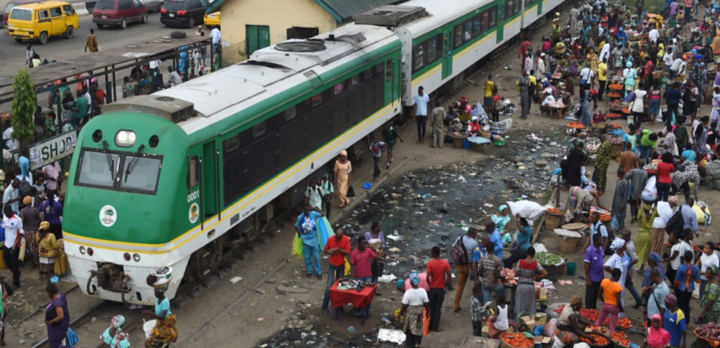The Nigerian Railway Corporation has officially confirmed that the highly anticipated electronic ticketing (e-ticketing) system on the Lagos-Ibadan standard gauge rail line is set to be implemented starting next week. This significant development was publicly announced by the Managing Director of the Corporation, Fidet Okhiria, during a recent interview on Television Continental (TVC).
According to Mr. Okhiria, the final testing phase for the e-ticketing platform is expected to conclude today, Wednesday. This rigorous testing is aimed at ironing out any potential issues or glitches to ensure a seamless and hassle-free experience for passengers once the system goes live.
The e-ticketing system promises to revolutionize the way passengers book their train tickets, eliminating the need for physical presence at train stations. Instead, individuals will have the convenience of purchasing their tickets online using any internet-enabled device, at least 48 hours before their intended departure.

This innovative e-ticketing solution is not limited to the Lagos-Ibadan route alone; it will also be rolled out on the Abuja-Kaduna, Lagos-Ibadan, and Itakpe-Warri rail lines. This expansion indicates the Nigerian Railway Corporation’s commitment to providing modern, efficient, and user-friendly services to the public.
“The e-ticketing is the way to go; it is the way to secure our money and our investments because as you buy your tickets, it goes to the government coffers directly. We have it in Abuja-Kaduna, and we are also going to have it at Lagos-Ibadan and Itakpe-Warri. By the end of the month, our passengers should start using it,” Mr. Okhiria explained.
Moreover, the Nigerian Railway Corporation is not only focused on improving ticketing processes but also aims to enhance the overall rail travel experience. In line with this goal, Mr. Okhiria revealed plans to increase the speed of trains operating on the Lagos-Ibadan Standard Gauge.
Since the Lagos-Ibadan standard gauge rail line commenced operations in 2021, it has been operating at a speed of 40 kilometers per hour (km/hr). This speed is significantly below the original design specifications, which allowed for a maximum speed of 150km/hr. To rectify this, the Corporation intends to raise the operating speed to 80km/hr initially, with a long-term goal of gradually reaching 120km/hr, particularly within the Lagos area.
To ensure the safety of both passengers and the public, Mr. Okhiria emphasized the importance of adhering to safety protocols and refraining from trespassing on the rail tracks. The Corporation plans to make recurring announcements at various train stations in Lagos to raise awareness about the increased train speed and the need for vigilance around rail crossings.
In Mr. Okhiria’s words, “We are going to be increasing our speed, especially within Lagos. I’m also using this opportunity to tell our brothers and sisters playing on the tracks to stop it. Right now we are doing 40 kilometers; we are going to be moving to 80 kilometers because the tracks are designed for 150. But we won’t mind going gradually to 120km per hour, especially within Lagos.”
“People should be aware of that, and those who cross the tracks should be aware of that and obey the level crossing lights and obey our signalmen. We have gone out to start making public announcements already at Oshodi, Yaba, Mushin at Agege, telling them that the speed of the train is going to go up. If the train is designed to run at 150km, people should avoid the permanent way; it is not a place to trade.”
The Nigerian Railway Corporation’s commitment to improving the efficiency and safety of rail transportation in the country is evident through the introduction of e-ticketing and the planned increase in train speeds. These initiatives are poised to benefit passengers and contribute to the growth of the railway sector in Nigeria, offering a more convenient and secure travel experience.
Support InfoStride News' Credible Journalism: Only credible journalism can guarantee a fair, accountable and transparent society, including democracy and government. It involves a lot of efforts and money. We need your support. Click here to Donate
